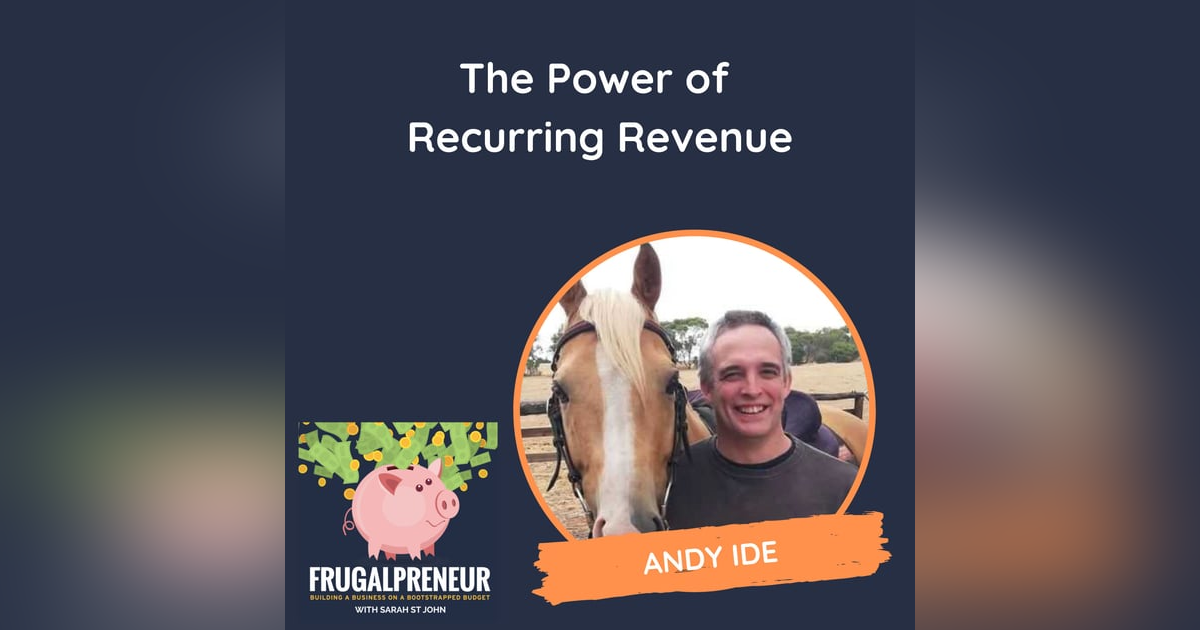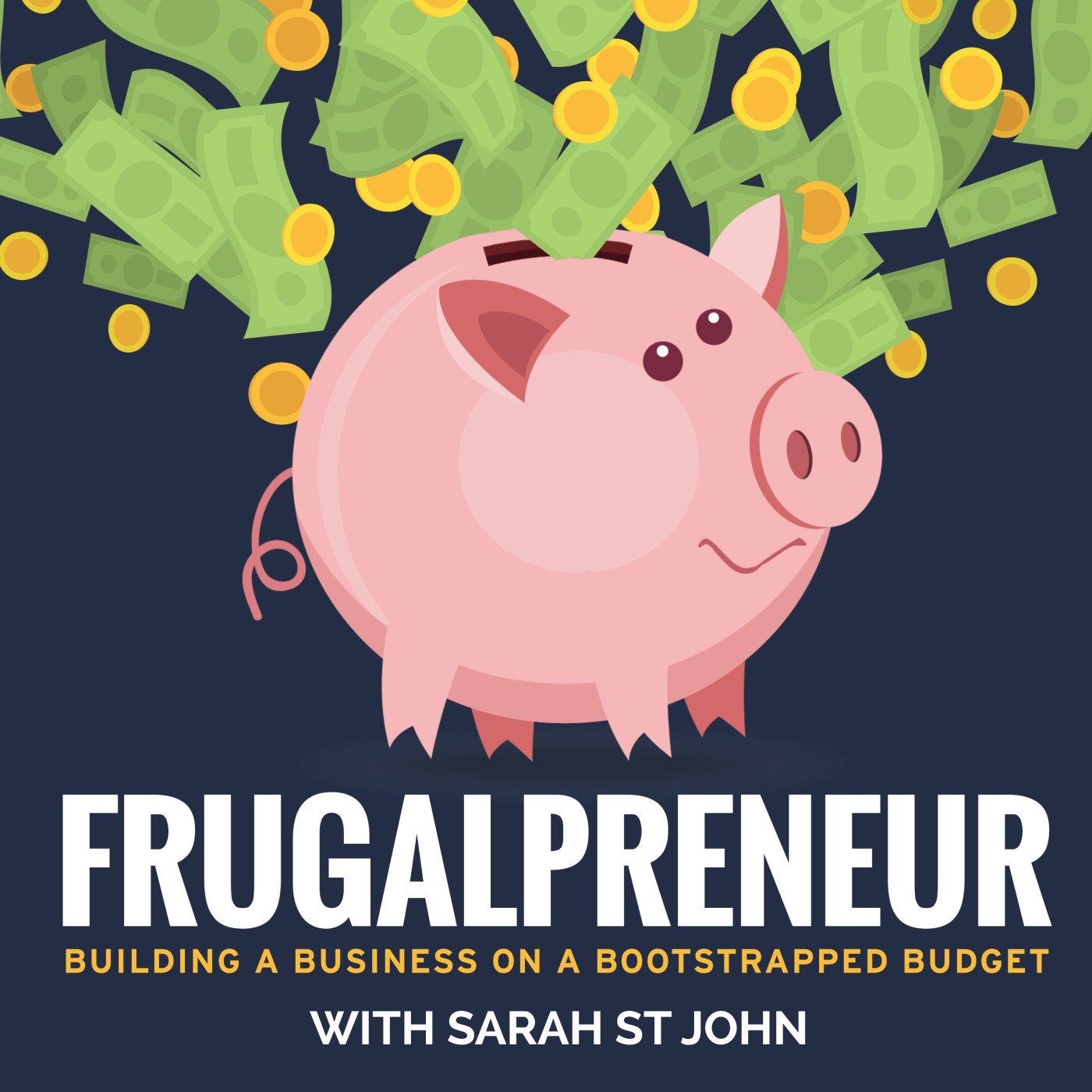The Power of Recurring Revenue (with Andy Ide)

In this engaging episode, listeners are introduced to Andy, a software engineer who has successfully navigated the complexities of entrepreneurship through his venture, Horse Records. The genesis of his business is deeply rooted in a personal narrative—his wife’s struggle to keep accurate records of her horses catalyzed his journey into the world of software development. This personal connection not only lends authenticity to his story but also illustrates the profound impact that real-life challenges can have on entrepreneurial endeavors.
Andy elaborates on the practicalities of bootstrapping a business, providing a detailed breakdown of the financial investments required to establish Horse Records. His approach to managing costs, particularly through leveraging his day job to fund initial expenses, serves as a salient point for prospective entrepreneurs. By detailing the minimal overhead associated with his operations, he offers a practical framework for maintaining financial viability in the early stages of business development. His reflections on the marketing landscape, particularly the missteps taken with an ill-suited marketing agency, further emphasize the critical importance of aligning marketing strategies with industry-specific insights.
The episode culminates in a discussion of the importance of establishing recurring revenue streams, as Andy advocates for a subscription-based model that can buffer against income fluctuations. His experience in fostering business-to-business relationships, particularly with state racing authorities, exemplifies a strategic approach to customer acquisition that is often overlooked by new entrepreneurs. By sharing his insights and experiences, Andy not only inspires listeners but also equips them with actionable strategies to enhance their entrepreneurial ventures, reinforcing the notion that success is rooted in both innovation and strategic planning.
Takeaways:
- The episode emphasizes the importance of implementing practical strategies gleaned from successful entrepreneurs to enhance one's own business practices.
- Andy, a software engineer, discusses how his wife's need for horse records inspired the creation of his innovative web application, Horse Records.
- A significant takeaway is the emphasis on establishing a recurring subscription model to stabilize cash flow and ensure consistent income, particularly during economically slow periods.
- The speaker highlights the critical nature of targeted marketing, as initially poor marketing choices resulted in substantial financial loss, underscoring the need for industry-specific expertise.
- The podcast illustrates the value of maintaining professional relationships with organizations that can facilitate customer acquisition, thereby enhancing business growth.
- Lastly, the episode conveys that effective record-keeping for horse management not only boosts organization but also potentially increases the value of the animals.
Links referenced in this episode:
00:00 - Untitled
00:44 - Untitled
01:07 - Introduction to Showcase Episodes
02:32 - The Birth of Horse Records
03:35 - Bootstrapping a Web Application: Costs and Marketing Strategies
05:15 - Transitioning from Marketing Mistakes to Success in the Horse Industry
06:51 - The Importance of Subscription Models in Business
07:50 - Introducing New Resources
Welcome to the Frugalpreneur podcast. I am your host, Sarah St. John.This episode is what I refer to as a showcase episode where I feature a bootstrapped entrepreneur and they briefly share their tips, tricks, tactics, techniques, and tools that help them bootstrap their business and the successes and failures along the way.My hope is that each of these showcase episodes will provide at least one valuable takeaway that you can implement right away in your own bootstrap business journey. Now onto the episode.
Andy IdeI'm Andy. I'm a software engineer by trade. I started my programming journey building websites back in the early 2000s.I married a horse girl and we went living on a farm, and my wife was upset about not being able to keep a record of her horses that lasted a mint time. So people would call her and ask about a horse that she broke in or bred 15 years ago.And even though her memory's pretty good, she wasn't able to remember all the time. And notebooks degrade and notebooks can't get filed correctly. They're hard to find. Can you find a notebook from 20 years ago?Whiteboards, which horse people often use, are sort of only a snapshot in time. And yes, our memories aren't as good as it used to be. So she asked me to code something online.I coded something that we ran with our stud for about two years that recorded everything that was happening with the animals, the breeding, the following in the dentistry, et cetera. And then she said, why don't you let other people use it?So I rewrote the code with the lessons I'd learned from our stud, made it a lot more customizable and able to handle every breed in every discipline. And that is how Horse Records was born. So because Horse Records is a web application.A web application is a website you basically have to log into to do stuff. I was very conscious of the costs involved. It's interesting how the spread is the website hosting I was able to get very cheaply and simply.I had a day job, and I used the money from the day job to pay for that. I didn't have to go into savings because the costs are pretty low. Interestingly enough, the hosting for the website was something like $10.The domain name was 96. And then you got your backups, which were $10 a month as well.But then there's other costs involved, such as a mailchimp account, which is for your newsletters and stuff, and that that was $70. So the marketing for sending emails was actually more expensive than hosting the whole website.The other thing I did was Cloudflare which I did a paid plan on that which actually really increased the site itself. What are we looking at? A little bit over a hundred dollars a month. I was able just to simply afford that just because I had a day job.So yeah, that's, that's how I've bootstrapped it. And then the income from the business has enabled me to increase my marketing and pay for marketing.Facebook ads, Google Adwords, Reddit ads, et cetera. So it's always kind of paid for itself and that's how I've set it up. Other than those first few months, you have to pay just to get it going.One thing I haven't recovered is the payment for my time in building the website.So my biggest success was realizing that while I am a business to customer a B2C product, there is a lot to be made in business to business relationships. And I was able to contact the right person at my state racing authority and talk to them about their off the track retired racehorses.So I'm in South Australia.So the racing bodies, racing SA and now whenever they have a racehorse that retires and is sold to someone and then they give the horse gets a new career, maybe in dressage event in cross country, whatever, I get that record and I set the person up for free in horse records.The great thing about that is I've got someone else effectively bringing customers to me without me having to do anything other than maintain the relationship. I've since spread that model to a number of different states within Australia and it is by far the the best way of me getting new customers.The worst thing was the initial marketing company I went with. I complete mistake. Those guys cost me six to eight grand in marketing fees and they had nothing, no idea about the horse industry.They treated the horse industry just like trying to sell bottles of wine or something. A real consumer related industry. All their wording was wrong, their phrasing stood out as obviously wrong for horse people.That was the biggest cost and mistake when I was launching. Then I found a marketing company that focuses specifically on horse people and it's worked much better since then.So I've been in a number of businesses I've built myself. First was the website business and now horse records. And by far my strongest advice to you is to get some sort of subscription model happening.What that means is it removes.Well in Australia there's a downturn around December, January, December because of Christmas everyone shuts down January, the accounts departments aren't coming back and they're all on holiday and they don't pay their invoices.What you want to do is have some sort of regular recurring subscription for your customers, be that something like maintenance or a regular product you send out or something like that, so that you don't have those downturns of income and you can effectively trust your regular income stream coming in. By far, that's my greatest advice. I strongly, strongly recommend that to anyone setting up a business is to have some sort of subscription.Now my product is a subscript, is a software as a service, so the subscription is built in. So that's good. I highly recommend it.And I cannot emphasize enough how important it is to have some sort of subscription or some sort of maintenance plan you set up with your customers so you've got that constant amount of money trickling in. Yeah, well, if you've got horses, it doesn't matter what breed or discipline or sub discipline you're involved in.Horse records can help you keep your information for your animals all organized.I like to think that having a horse with all its barrier and worming and veterinary and all its vaccinations all recorded is a bit like buying a car with a full service record. I believe it does increase the value of the horse and you're. And you're more organized. So my website is horserecords.info.you can just join for free, try it out, see if it's any good. Feel free to send me a message. More than happy to have a chat or send emails back and forth.I also have a blog where I talk about technical matters, programming and I do talk a bit about AI and some success related things. And that is djangoandy spelled D J A N G O a n d y dot com.So there's two websites again, horserecords.info and djangoandy.com and hey, when you join, send me a message. Let me know you found us via this podcast. That'd be great.
Sarah St JohnI hope you enjoyed that episode and were able to take away a valuable nugget of information that you can implement right away in your own business. If you feel your story would be valuable for the listeners of this show, please visit Frugal show guests.








